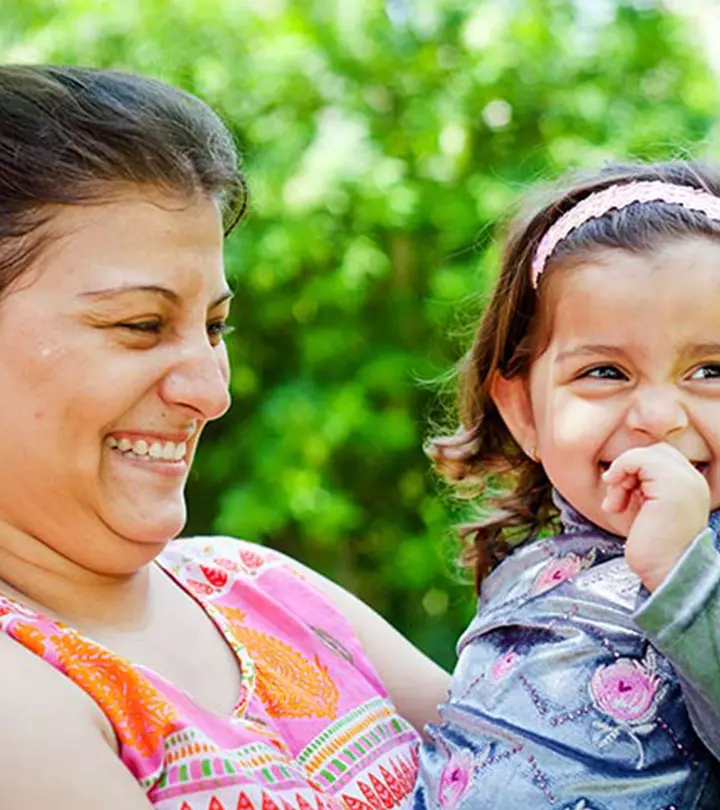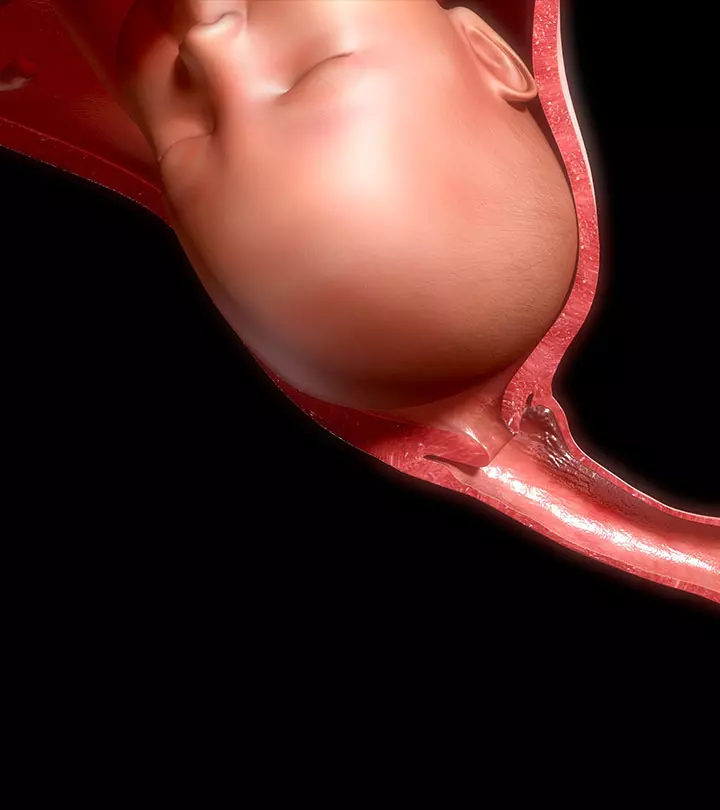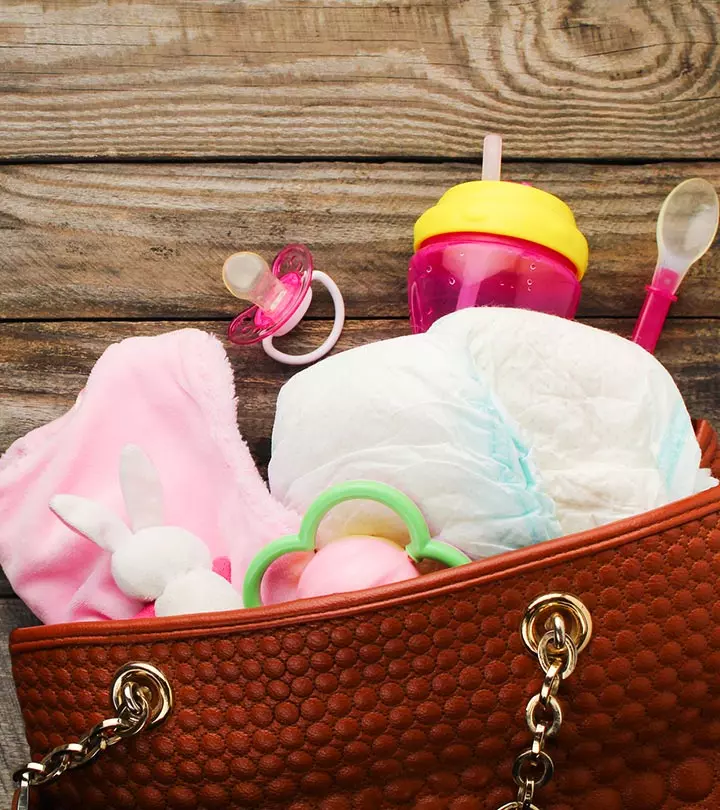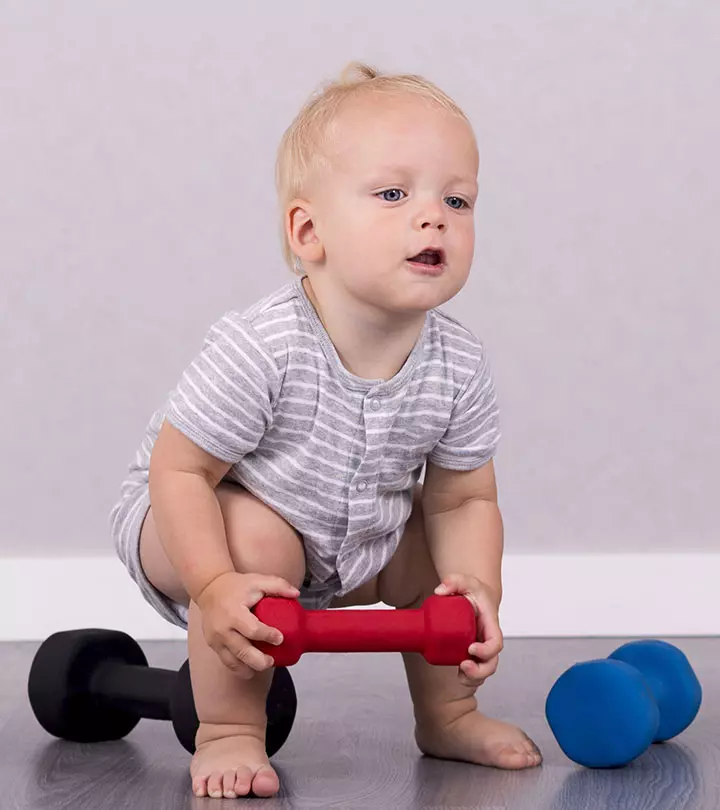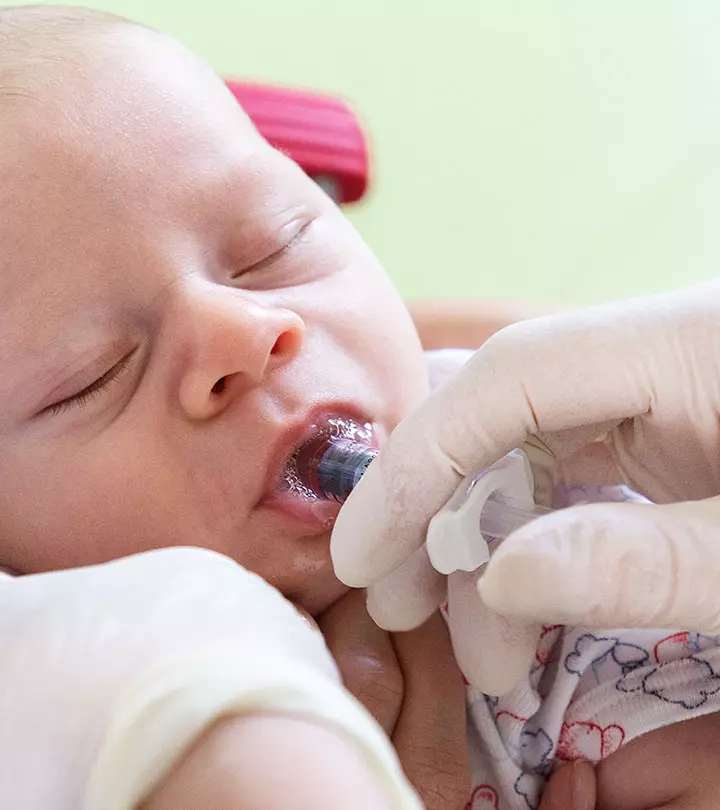

Image: iStock
To see one’s child in sickness is distressing. Common cold and general flu-like symptoms gradually clear away on their own and it is said to be beneficial to allow the virus to take its course, because indirectly they prepare the immune system to fight on its own.

Hence the immunity of the body shoots up against that particular virus in spite of the initial discomfort and temperature.
However, the parents being protective and concerned about the welfare of the child, often commit the mistake of self-medicating their babies. And as often is the case, it does more harm than good. It may bring upon certain side effects or allergies that make the situation more damaging.
Parents put their babies under medication only after consulting a qualified pharmacist or their general practitioner. Even something seemingly harmless like over-the-counter medicines can cause adverse reactions. The following pointers are important to note and should be followed as a thumb rule.
1. Medicines prescribed to another child
Firstly, there is no homogenous treatment for children’s ailments because every child is different. Prescription drugs intended for other children, even if it is one’s own relative, may be potentially hazardous when given to your child. Only give your child medicine prescribed for his/her specific condition.
2. Administering adult medication to children
Similarly, giving children adult medication or doses is equally perilous. It is because the doses are of different concentration / dilution and measure. Moreover, each drug has different potency and shouldn’t be mixed. It can lead to severe complications. One must follow the dosages as prescribed by the doctor or the instruction leaflet.
3. Aspirin /salicylate or acetylsalicylate
Though aspirin is considered a wonder drug being a popular painkiller and an anti-inflammatory agent, you should not give aspirin to children under 16 years as a serious, often fatal condition called Reye’s syndrome is linked to aspirin.
Aspirin is also known as salicylate or acetylsalicylate. Studies say that Reye’s syndrome can result in serious impairment of brain functions due to inflammation. Other side-effects that can be long-term include complications such as decreased concentration, loss of primary senses, language problems, delayed speech, imperfections in posture, etc.
4. Excess use of Ibuprofen or use during dengue fever
Unsupervised or excess use of ibuprofen can be risky. It is often used to reduce pain and decrease inflammation. It is alternatively used in place of aspirin and to ease the symptoms of juvenile arthritis. But administering this medicine without precaution can be quite unsafe. It can trigger bleeding in the stomach, and aggravate the previous conditions of ulcers. It can also cause damage to the liver of young children.
It should be particularly avoided in a dengue fever because dengue destroys the platelets which are responsible for bleeding control, and the chances of bleeding may actually increase. Aspirin and Ibuprofen perform similar functions. Combined, they can cause excess bleeding and may result in the patient going into what is called the ‘Dengue Shock syndrome’.
5. The CCM’s (Cold and cough medicines)
Say a big NO to cold and cough medications (CCMs) that are rampantly available. Research has stated that the components of such medicinal formula have no favorable effects. The US FDA has discouraged the use of cold and cough medication for children below two years of age due to absence of any concrete relief. On the other hand, the medicine has caused considerable harm through toxic side-effects of careless overdoses. These medications include decongestants, expectorants, antihistamines and antitussives (cough suppressants) that you can pick up at pharmacies and supermarkets.
The American Academy of Paediatrics’ findings suggest that such medicines are counter-effective and do not show any improvement. They just provide a placebo effect.
Rather, one can rely on home remedies such as lemon and ginger, or hot soups and beverages to ease the discomfort. Steam inhalation and hot water bath may also be helpful in relieving congestion
6. Chewables and gummies
Lastly, the safe consumption of chewable medication or supplements is a myth. Often they are high on sugar and may even lead to overdose toxicity, for example in case of vitamin A and C. They also pose a danger of choking the baby. It is more appropriate to powder and mix them with food than giving in solid tablet or gummy forms.
These are some common mistakes of administering drugs to children, and you might want to avoid them.
Community Experiences
Join the conversation and become a part of our nurturing community! Share your stories, experiences, and insights to connect with fellow parents.


